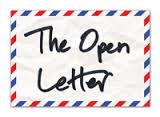Dear Dr. Little:
On behalf of United Poultry Concerns I write to express my keen disappointment in the AVMA's recent resolution to continue endorsing the starvation of hens to protect the poultry and egg industry at the expense of avian welfare. Based on the AVMA's continuing acceptance of depriving hens of food and the AMVA Positions on Animal Welfare in the 2002 AVMA Directory, it is clear that your association does not uphold its oath "to use my scientific knowledge and skills for the benefit of society through promotion of public health, protection of animal health, and the relief of animal suffering."
The AVMA knows perfectly well that the practice of withholding food from a bird for days and weeks is not comparable to the natural seasonal cycles in which hens replace their feathers in the fall after hatching and raising their chicks. You can take any natural behavior pattern of any species, such as when people stay up all night working on a project and forget to eat, and use that behavior to justify depriving them of sleep and food saying, "It isn't cruel. People often go for hours or days without sleeping or eating; therefore, preventing people from eating and sleeping for a week or two merely simulates natural human behavior."
In justifying forced molting you have chosen to ignore the pathologic effects of this cruel practice on the birds: naturally molting birds do not degenerate into debilitation and susceptibility to Salmonella enteritidis. They do not, in the words of Dr. Ian Duncan, "suffer enormously" as do force-molted hens, and their mortality does not "increase dramatically" as does the mortality of force-molted hens. I live with chickens, and I know that their behavior and condition when molting naturally do not match your assertions.
It is said within your own profession that not until the present generation of the AVMA retires will the veterinary profession be represented by an association that genuinely promotes animal and social well-being. This is a pathetic commentary on your role thus far. You swore an oath to protect public health and to relieve animal suffering and you have, in fact, done precisely the opposite. In a recent issue of AVAR Directions, Dr. Peggy Larson writes that 'With time, the veterinary profession will become an animal advocacy profession with or without its professional organization."
This time cannot come fast enough. In the meantime United Poultry Concerns will continue to inform our members and others of the AVMA's betrayal of its oath "to relieve animal suffering" and of its actual investment in maintaining and increasing animal suffering.
Thank you for your attention. I would appreciate a response from you at your earliest convenience to share with our members.
Sincerely,
Karen Davis, PhD
















